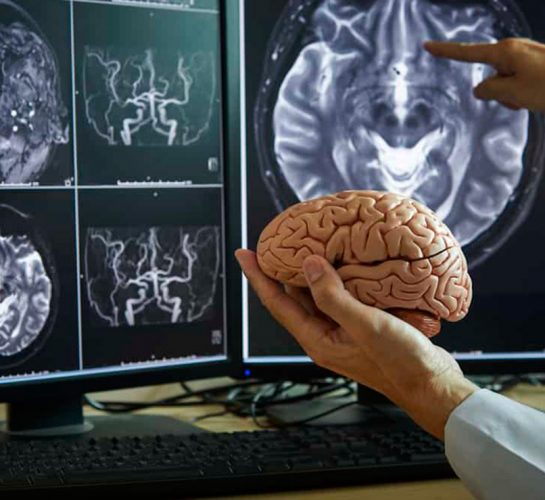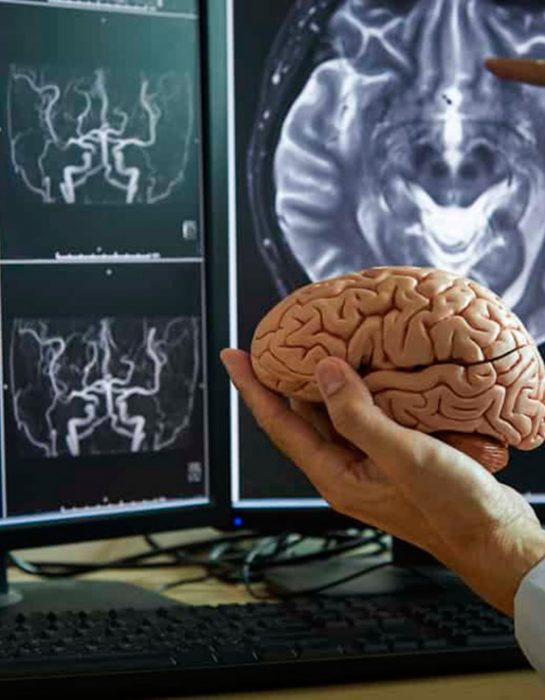Neurology and Neurosurgery
Neurology and neurosurgery are both medical specialties studying the diseases of the central and peripheral nervous system such as, stroke, epilepsy, brain tumors, disk diseases, Alzheimer’s and multiple sclerosis among others.
Neurology complements neurosurgery and vice versa.
They both focus in treating pathology affecting the brain and spinal cord, but neurology differentiates from neurosurgery in that it only treats chronic degenerative conditions such as Parkinson’s disease, while neurosurgery treats diseases that need surgical treatment, such as brain tumors of disk diseases.
Skull Base Surgery
The skull base is a very complex anatomical region with a difficult access. It is the region of the skull where the brain sits, and through which nerves and spinal cord emerge. It separates the face from the brain.
It is the site where conditions such as pituitary adenomas, meningiomas, trigeminal neuralgia, schwannomas, among others, can occur.
Thanks to medical and technological advances, today we can offer minimally invasive procedures for the treatment of pathology in this area, with the aim of increasing exposure with less brain manipulation. This kind of procedures take place with the assistance of surgical microscope, endoscope, or sometimes both.
Due to the complexity associated with skull base procedures, it is recommended that the diagnosis and treatment of injuries in the region be performed preferably by specialists in this area. These specialists should not only be trained in microsurgical techniques, but also have ample knowledge and experience in and around this anatomical region, increasing the probabilities of success and diminishing the risk of complications.



